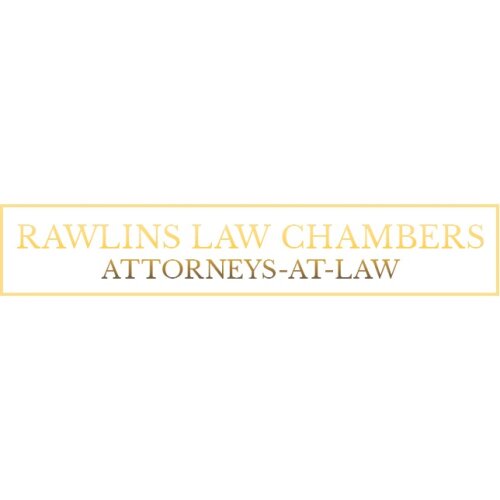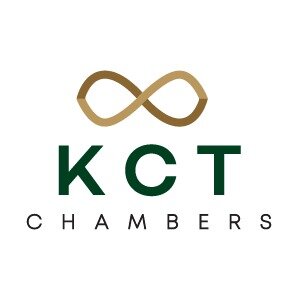Best Debt & Collection Lawyers in Barbados
Share your needs with us, get contacted by law firms.
Free. Takes 2 min.
Or refine your search by selecting a city:
List of the best lawyers in Barbados
About Debt & Collection Law in Barbados
Debt & Collection law in Barbados refers to the legal framework that governs the process of collecting debts from individuals or businesses who owe money to creditors. This area of law encompasses various rules and regulations designed to protect the rights of both debtors and creditors in Barbados.
Why You May Need a Lawyer
There are several situations in which you may require the assistance of a lawyer in Debt & Collection matters in Barbados. Some common reasons include:
- Dealing with debt collectors
- Negotiating debt settlement agreements
- Defending against debt collection lawsuits
- Filing for bankruptcy
Local Laws Overview
Key aspects of local laws in Barbados that are particularly relevant to Debt & Collection include:
- The Debtors Act
- The Barbados Civil Procedure Rules
- The Bankruptcy and Insolvency Act
Frequently Asked Questions
1. Is there a statute of limitations for debt collection in Barbados?
Yes, there is a statute of limitations for debt collection in Barbados, which is typically six years from the date the debt became due.
2. Can a creditor garnish wages in Barbados?
Yes, under certain circumstances, a creditor can garnish wages in Barbados to recover outstanding debts.
3. What are my rights as a debtor in Barbados?
Debtors in Barbados have rights protected by law, including protection from harassment and unfair debt collection practices.
4. Can I negotiate a debt settlement with my creditors in Barbados?
Yes, it is possible to negotiate a debt settlement with creditors in Barbados to resolve outstanding debts amicably.
5. How can I avoid bankruptcy in Barbados?
Seeking the advice of a legal professional and exploring debt consolidation options are some ways to avoid bankruptcy in Barbados.
6. What is the process for filing for bankruptcy in Barbados?
The process for filing for bankruptcy in Barbados involves submitting a bankruptcy petition to the court and complying with the requirements of the Bankruptcy and Insolvency Act.
7. Can a debt collection agency sue me in Barbados?
Yes, a debt collection agency can sue individuals in Barbados for unpaid debts, but they must follow legal procedures and obtain a court judgment.
8. Are there consumer protection laws for debtors in Barbados?
Yes, there are consumer protection laws in Barbados that safeguard the rights of debtors, including protection against unfair practices by creditors.
9. How can a lawyer help me with debt collection issues in Barbados?
A lawyer can assist in negotiating with creditors, defending against debt collection lawsuits, and guiding individuals through the legal processes involved in debt collection in Barbados.
10. What are the consequences of defaulting on a debt in Barbados?
Consequences of defaulting on a debt in Barbados may include legal action by creditors, damage to credit rating, and potential seizure of assets to satisfy the debt.
Additional Resources
For further information and assistance regarding Debt & Collection matters in Barbados, individuals can contact the Barbados Bar Association or the Fair Trading Commission.
Next Steps
If you require legal assistance in Debt & Collection matters in Barbados, it is advisable to consult with a qualified lawyer who specializes in this area of law. They can provide personalized advice and representation to help resolve your debt-related issues effectively.
Lawzana helps you find the best lawyers and law firms in Barbados through a curated and pre-screened list of qualified legal professionals. Our platform offers rankings and detailed profiles of attorneys and law firms, allowing you to compare based on practice areas, including Debt & Collection, experience, and client feedback.
Each profile includes a description of the firm's areas of practice, client reviews, team members and partners, year of establishment, spoken languages, office locations, contact information, social media presence, and any published articles or resources. Most firms on our platform speak English and are experienced in both local and international legal matters.
Get a quote from top-rated law firms in Barbados — quickly, securely, and without unnecessary hassle.
Disclaimer:
The information provided on this page is for general informational purposes only and does not constitute legal advice. While we strive to ensure the accuracy and relevance of the content, legal information may change over time, and interpretations of the law can vary. You should always consult with a qualified legal professional for advice specific to your situation.
We disclaim all liability for actions taken or not taken based on the content of this page. If you believe any information is incorrect or outdated, please contact us, and we will review and update it where appropriate.
Browse debt & collection law firms by city in Barbados
Refine your search by selecting a city.









